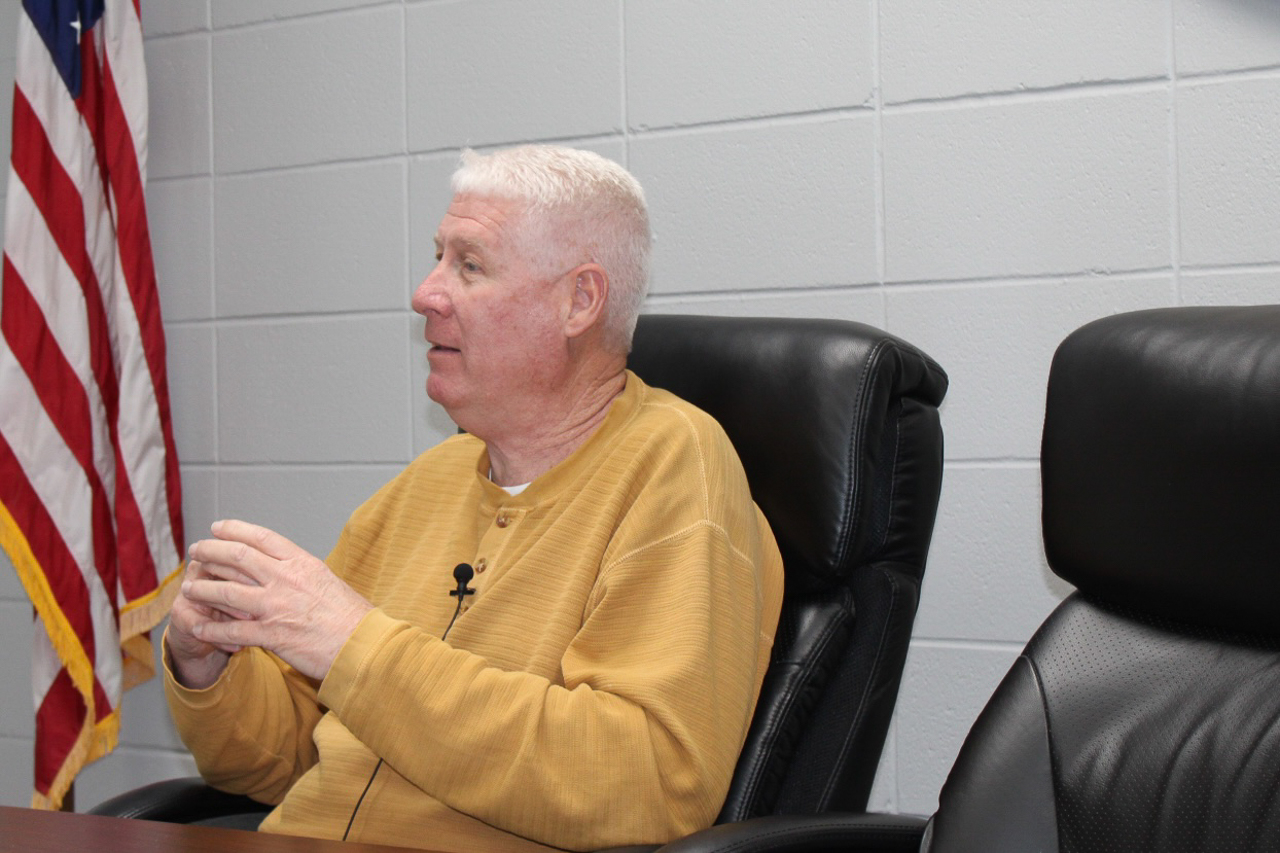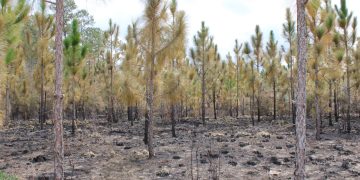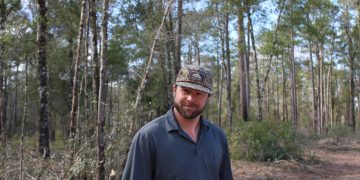
“All you have to do is make a drive through (Greene County) to see that our most abundant resource is trees, primarily pine trees,” long-term resident of Greene County, Miss., Danny Box said.
Box worked for the Natural Resources Conservation Service Agency within the U.S. Department of Agriculture for 33 years. He retired in 2019, but he decided to return to work for Greene County as the economic development director in 2021.
“We’re doing things here in economic development to try to create a better environment for timber growers,” Box said. “(We want) private landowners to have more opportunities to market their products since now there’s limited options for them when they … harvest, and those that do the harvesting have limited options on where to deliver that product to. The more opportunities we create, the better for our citizens.”
According to Mississippi State University researchers, families and private companies own almost 70% of the forestland in the state, so the development of the timber industry has the potential to affect more than 150,000 people and large corporate owners.
More trees than markets
In 2012, Dillon McInnis’ family opened Timberline Forestry, LLC in Leakesville, Miss. Randy McInnis, Dillon’s father, won Logger of the Year through the Mississippi Forestry Association in 2022. The family’s love for nature has a strong impact on how they handle their business. However, Dillon McInnis said Mississippi forestland owners need more places to sell their products.
“We have such a supply of trees here. That is supply and demand,” McInnis said. “When we’ve got more trees than they need, the price stays cheap on our end.”
One corporation that buys timber from McInnis has had a rough go of it in Mississippi. Enviva Inc. — one of the world’s largest producers of timber products — takes timber from sellers across the world and produces industrial wood pellets that serve as a renewable and sustainable energy source. As of March 5, the company was preparing to file for bankruptcy protection.
“Mississippi has been home to Enviva operations for over a decade — since 2010 to be exact — when we opened our first plant just outside Tupelo in Amory, which continues to operate today,” Maria Moreno, Enviva’s vice president of communications and public affairs said in an email statement.
Two of its eight plants are located in Mississippi, including one in Lucedale, located in George County, which neighbors Greene County. According to a Wall Street Journal report, Enviva estimated that the price of power-plant fuel would keep climbing, which would in turn increase demand for its wood pellets, but that did not happen.
“Looking back, construction on Enviva’s Lucedale plant supported approximately 400 cumulative jobs and represented an investment of more than $215 million in George County by Enviva,” Moreno said. “Now fully operational, Enviva has hired approximately 90 full-time employees for the Lucedale plant and supports nearly 300 jobs across the George County community.”
If Enviva fails, suppliers like McInnis and the people the company employs will suffer. However, some environmentalists prefer that companies like Enviva disappear altogether, arguing that pellet manufacturers create air pollution that can cause health problems in nearby communities. They also say pellet fuel contributes to climate change as much as or worse than coal.
According to the Environmental Integrity Project, at least eight of the 15 largest U.S. wood pellet facilities have seen fires or explosions in the last 10 years. Twenty-one additional mills have been reported to emit excessive greenhouse gasses and pollutants.
McInnis and Box would like to see other companies that rely on timber move into the area.
“What we hope is that we attract a company that would build a sawmill,” Box said. “These facilities represent, roughly speaking, a $300 million capital investment, which, for a county like Greene, improves our situation from a tax revenue standpoint, and typically these sawmills create 80 to 100 jobs that pay good salaries.”
Box was contacted via phone and email in late March for an update on the status of the effort to attract a sawmill to the area, but he did not reply. However, if past experience is any indicator, the effort may not be easy. According to a study done by the Trent Lott National Center at the University of Southern Mississippi, the majority of the state’s timber industry jobs are “in the supply side of the industry, such as growing trees and logging, which do not produce value-added goods.”
In addition, Mississippi exports about 40% of its timber to companies in other states that make products such as construction materials, furniture and paper.
“This means that Mississippi is leaving a great deal of domestic value and production unrealized due to not having enough wood processors and wood product manufacturers,” according to the report.
‘Wise use of forest resources’
Attracting companies that provide economic stability and satisfy the concerns of environmentalists is challenging, but the Mississippi Forestry Association states that it specifically focuses on advocacy that is “conducive to the development and wise use of forest resources for the long-term benefit of all.”
John Auel, manager of the association’s tree farm and professional logging programs, said that forestry contributes billions of dollars and job opportunities to the state. Auel has worked in the industry since 1996 and said that “a healthy forest is a well-managed forest.”
Managing forestland involves a process known as “thinning” in which some trees or parts of trees are removed to make room for the growth of others. Logging companies do much of that work but need a place to sell their timber to make the process sustainable.
Auel sees the link between a healthy economy and thriving forests.
“If you don’t manage the forest then it gets overstocked. … (We’ve) basically found that forest management is our best way to keep these resources healthy … it also benefits biodiversity, wildlife and everything else,” Auel said.









































